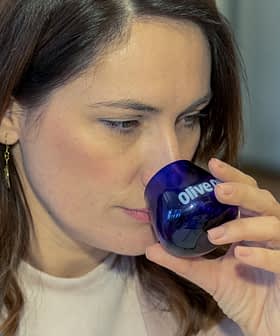EU Olive Farmers' Wishlist for Change
Olive oil producers are firming up their positions as negotiations advance on Europe’s future Common Agricultural Policy (CAP) and the action plan for the EU olive oil sector.
Juan Corbalán, Brussels delegate of Spanish Agri-food Cooperatives — which holds the presidency of the olive oil section of European farmer federation Copa-Cogeca — spoke to Olive Oil Times about what matters most to farmers.
He said priorities include increasing producer organizations’ negotiating clout in the food industry, and an overhaul in the area of quality control.
With the latter they seek some contentious measures, including putting the onus on retailers to ensure the oil they stock is of the quality stated on the label.
Rebalancing the food chain
The low incomes of many olive growers is acknowledged in the draft action plan, released by the European Commission in June for comment.
Corbalán said increasing the concentration of producers is essential if they are to strengthen their power in the food value chain.
“For example, in Spain, the world’s leading olive oil producer, there are more than 1,000 producer enterprises (900 are cooperatives) yet just four companies control about 40 percent of the (retail) market.”
These organizations need to be actively marketing their members’ produce but they require a sufficient mass in order to do so. Incentives are needed to spur mergers and develop tools that help farmers add value.
Work on this is taking place as part of the CAP negotiations, he said.
Limit of responsibility for product quality
There was uproar in Spain in October when a consumer body said its tests of shop-bought extra virgin olive oil found one in three was mislabeled. In their defense, some major olive oil companies said their oil was extra virgin when it left their hands, and they queried the validity of the consumer group’s tests, particularly the organoleptic results.
Corbalán said European law should be changed so when an olive oil is subject to inspection, whoever has the olive oil at the time — such as a store — should be liable.
“We want whoever is holding the product to be responsible for its quality, as occurs under fruit and vegetables law.”
“Not who sold it two years ago, but who has it now,” he said.
Panel test: first classification to be definitive
Farmers also want panel test rules harmonized so there is consistency in the way the test is applied across Europe.
And once an olive oil has been categorized by a panel as extra virgin, this result should remain valid for the life of the oil. Another panel test done two years later with a different outcome shouldn’t invalidate it, Corbalán said.
Asked about the need to also protect consumers, he said they, too, would benefit from such measures.
New tools
Quality control needs to be improved and made uniform both within and beyond the EU, he said.
There are good trade opportunities in countries such as China, India and the US, “but we need the same rules, categories and analytical tools to apply.”
The Spanish government has said it is studying new tools for the panel test, including a “chemical sensor” that could complement or substitute it. Some industry sources have told Olive Oil Times an electronic nose and a form of spectrometry are being assessed.
Corbalán said a tool had been proposed and was being examined, but he couldn’t elaborate.
Labeling and categories
Regarding best-before dates, the draft action plan said current legislation provides for an expiry date on labels, but does not set a storage period. There should be a study of changes in olive oil over time and agreement on an evaluation method, it said.
Corbalán said the standardization of best-before dates is important, “because some retailers ask for two years, others three, and some one year.”
He said there is also a need to find a new name for the retail grade called “olive oil” — a mix of virgin and chemically refined olive oil — because it is very confusing for consumers. There is so far no strong contender for the new name, however.
Trigger prices for private storage aid
It’s understood there is currently consensus at European Parliament level to increase the trigger prices for extra virgin and virgin olive oil (but not for lampante), to enshrine the prices in the main olive oil legislation, and to provide that activation be swift and automatic.
Corbalán said the latter measures are important because farmers need the security of knowing that once ex-mill prices are below the triggers, the aid will be automatic — “as it is in other sectors, such as butter” — instead of at the Commission’s discretion.
“The European Parliament is doing a good job and we trust that in the end the European Council and and Commission will accept its position.”
Nevertheless, producers hope the Parliament will yet be convinced to also increase the trigger price for lampante, he said.
Dossiers on relevant aspects of the future CAP and the action plan are still being reviewed by committees of the Commission and Parliament.









